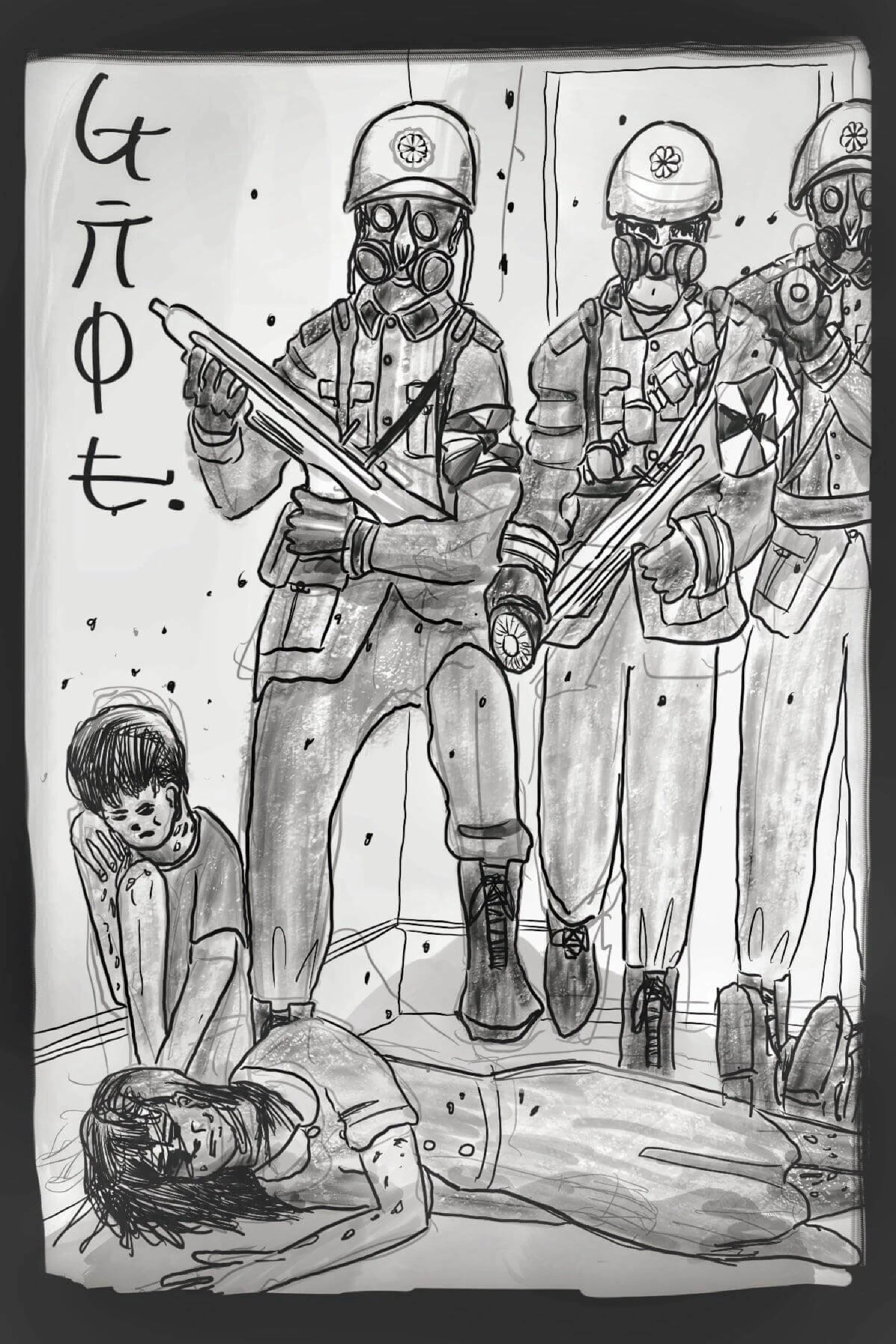NEW Story: Sunday Morning
Chemical Warfare in 2063

“We came to a town and found it scorched with mustard and the fragments of phosgene shells, and the wind whistled through the doorways that were left open. I remember being surprised by how many of them were in basements — probably because they thought the gas would blow away in the wind. The entire town was dead, and we were worried that the gasses were still lingering, so the unit wore their masks as we began to cremate them. The flies lay eggs in the heat and that’s all anyone talked about; lots of flies. They gave us cigarettes to mask the smell.
“I remember very clearly a man in our unit, who is dead now but was only new then, throwing up in the gutter outside what had been a grocery store. He looked up at me and saw me watching, and he said, “this fucking sucks,” and then threw up again. I had watched him execute P.O.W.s, and treat combat wounds without flinching, and he was a tough guy — you know; big, heavyset — but here I was watching him put his guts on the sidewalk. I left the crematory pit in the city square and went to relieve him, and I found the bodies of forty-five children no older than seven or eight, squished up in a corner of the basement, crushing their friends, because whatever gas had been swirling down the stairwell was so thick that they could see it coming.”
— Excerpt from The Cost of Chemical Warfare article, the New York Times, October 21st 2064.
The troops pictured form part of the Vekllei expeditionary forces, an experienced group that deals largely with war crimes and militarised espionage. They operate in coordination with the secret services and military police. A New York Times photojournalist attached with Unit 75 in northeast Taiwan documented the consequences of heavy chemical shelling in rural Taiwan, and saw just a small number of the hundreds of thousands killed in the Sino-Taiwanese war.
Forgive my shitty illustration. If you have any questions, I love ’em.